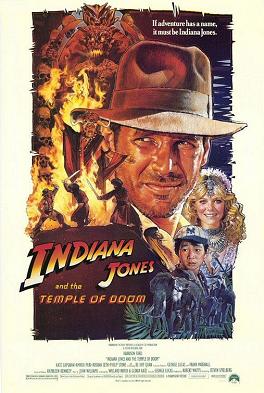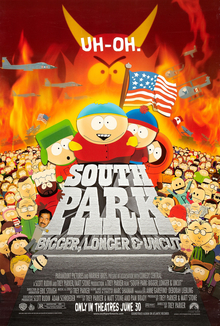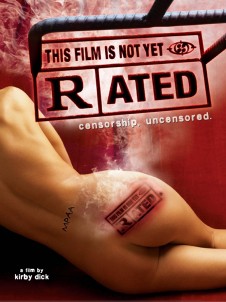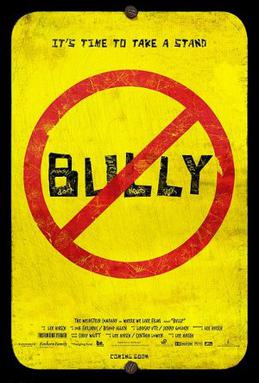Related Research Articles
An X rating is a rating used in various countries to classify films that have content deemed suitable only for adults. It is used when the violent or sexual content of a film is considered to be potentially disturbing to general audiences.
The Motion Picture Associationfilm rating system is used in the United States and its territories to rate a motion picture's suitability for certain audiences based on its content. The system and the ratings applied to individual motion pictures are the responsibility of the Motion Picture Association (MPA), previously known as the Motion Picture Association of America (MPAA) from 1945 to 2019. The MPA rating system is a voluntary scheme that is not enforced by law; films can be exhibited without a rating, although most theaters refuse to exhibit non-rated or NC-17 rated films. Non-members of the MPA may also submit films for rating. Other media, such as television programs, music and video games, are rated by other entities such as the TV Parental Guidelines, the RIAA and the ESRB, respectively.

Indiana Jones and the Temple of Doom is a 1984 American action-adventure film directed by Steven Spielberg. It is the second installment in the Indiana Jones franchise, and a prequel to the 1981 film Raiders of the Lost Ark, featuring Harrison Ford who reprises his role as the title character. Kate Capshaw, Amrish Puri, Roshan Seth, Philip Stone, and Ke Huy Quan star in supporting roles. In the film, after arriving in India, Indiana Jones is asked by desperate villagers to find a mystical stone and rescue their children from a Thuggee cult practicing child slavery, black magic, and ritual human sacrifice in honor of the goddess Kali.

The Motion Picture Production Code was a set of industry guidelines for the self-censorship of content that was applied to most motion pictures released by major studios in the United States from 1934 to 1968. It is also popularly known as the Hays Code, after Will H. Hays, president of the Motion Picture Producers and Distributors of America (MPPDA) from 1922 to 1945. Under Hays's leadership, the MPPDA, later the Motion Picture Association of America (MPAA) and the Motion Picture Association (MPA), adopted the Production Code in 1930 and began rigidly enforcing it in 1934. The Production Code spelled out acceptable and unacceptable content for motion pictures produced for a public audience in the United States.

Jack Joseph Valenti was an American political advisor and lobbyist who served as a Special Assistant to U.S. President Lyndon B. Johnson. He was also the longtime president of the Motion Picture Association of America. During his 38-year tenure in the MPAA, he created the MPAA film rating system, and was generally regarded as one of the most influential pro-copyright lobbyists in the world.

The Film Classification and Rating Organization, also known as Eirin (映倫), is Japan's self-regulatory film regulator. Eirin was established on the model of the now-defunct American Motion Picture Producers and Distributors Association's Production Code Administration in June 1949, succeeding the US-led occupation authorities' role of film censorship during the Occupation of Japan. It classifies films into one of four categories depending on their suitability for viewing by minors of different ages.

South Park: Bigger, Longer & Uncut is a 1999 American adult computer-animated musical comedy film based on the animated sitcom South Park. The film was directed by series creator Trey Parker from a screenplay co-written with series co-creator Matt Stone and Pam Brady; and stars Parker, Stone, Mary Kay Bergman, and Isaac Hayes, all of whom reprise their roles from the series, with George Clooney, Eric Idle, and Mike Judge in supporting roles. The plot follows Stan, Kyle, Cartman, and Kenny as they sneak into an R-rated film starring the Canadian comedy duo Terrance and Phillip, after which they begin swearing. When the consequent moral panic culminates in the United States declaring war on Canada, Stan, Kyle and Cartman take it upon themselves to save Terrance and Phillip from execution, while Kenny tries to prevent a prophecy involving Satan and Saddam Hussein's intent to conquer the world.

Kimberly Ane Peirce is an American filmmaker, best known for her debut feature film, Boys Don't Cry (1999), which won the Academy Award for Best Actress for Hilary Swank's performance. Her second feature, Stop-Loss, was released by Paramount Pictures in 2008. Her film Carrie was released on October 18, 2013. She is a governor of the Academy of Motion Pictures Arts and Sciences and a National Board member of the Directors Guild of America.
The TV Parental Guidelines are a television content rating system in the United States that was first proposed on December 19, 1996, by the United States Congress, the television industry and the Federal Communications Commission (FCC), and went into effect by January 1, 1997, on most major broadcast and cable networks in response to public concerns about increasingly explicit sexual content, graphic violence and strong profanity in television programs. It was established as a voluntary-participation system, with ratings to be determined by the individual participating broadcast and cable networks.
The British Columbia Film Classification Office, part of Consumer Protection BC in the Canadian province of British Columbia, is responsible for rating and censoring films under the province's Motion Picture Act. The BCFCO film ratings are also used by Manitoba and Saskatchewan by bilateral agreement.

This Film Is Not Yet Rated is a 2006 American documentary film about the Motion Picture Association of America's rating system and its effect on American culture, directed by Kirby Dick and produced by Eddie Schmidt. It premiered at the 2006 Sundance Film Festival and received a limited theatrical release on September 1, 2006. IFC, the film's distributor, aired the film later that year. As it includes numerous clips from films rated NC-17 to illustrate content that had garnered the rating, the MPAA rated an early version of the film NC-17 due to "some graphic sexual content". Dick appealed this rating so he could chronicle both the rating and appeals process of the early version of the film in the final version, which, true to the title, is not rated.

Film censorship is carried out by various countries to differing degrees, sometimes as a result of powerful or relentless lobbying by organizations or individuals. Films that are banned in a particular country change over time.

The Alliance of Motion Picture and Television Producers (AMPTP) is a trade association based in Sherman Oaks, California, that represents over 350 American television and film production companies in collective bargaining negotiations with entertainment industry trade unions that include, among others, SAG-AFTRA, the Directors Guild of America, the Writers Guild of America, West, the Writers Guild of America, East, the American Federation of Musicians, and the International Alliance of Theatrical Stage Employees.

The Motion Picture Association (MPA) is an American trade association representing the five major film studios of the United States, as well as the video streaming service Netflix. Founded in 1922 as the Motion Picture Producers and Distributors of America (MPPDA) and known as the Motion Picture Association of America (MPAA) from 1945 until September 2019, its original goal was to ensure the viability of the American film industry. In addition, the MPA established guidelines for film content which resulted in the creation of the Motion Picture Production Code in 1930. This code, also known as the Hays Code, was replaced by a voluntary film rating system in 1968, which is managed by the Classification and Rating Administration (CARA).
Intent to Kill is a 1992 action, independent and thriller film directed by Charles T. Kanganis. The film is about drug trafficking, prostitution and police activity. Intent to Kill is rated NC-17 by the United States' Motion Picture Association of America, the reason being extreme violence. This was the first motion picture that received the MPAA NC-17 rating because of violence rather than sexual content.

Bully is a 2011 American documentary drama film directed and co-produced by Lee Hirsch and co-produced and written by Cynthia Lowen along with producers Cindy Waitt and Sarah Foudy. The film follows the lives of five students who face bullying on a daily basis in U.S. schools and premiered at the 2011 Tribeca Film Festival. It was also screened at the Hot Docs Canadian International Documentary Festival and the LA Film Festival.

India Summer is an American pornographic actress and nude model and a member of the AVN and XRCO Halls of Fame. Her stage name is based on the phrase Indian summer. She also has mainstream acting credits.

Film censorship in the United States was a frequent feature of the industry almost from the beginning of the U.S. motion picture industry until the end of strong self-regulation in 1966. Court rulings in the 1950s and 1960s severely constrained government censorship, though statewide regulation lasted until at least the 1980s.

Katherine Joan Bedingfield is an American political advisor who is the White House Communications Director in the Biden administration. She served as deputy campaign manager for the Joe Biden 2020 presidential campaign and former communications director for Biden when he was Vice President in the Obama administration.
References
- 1 2 McClintock, Pamela; Noble, Alexandra (May 25, 2019). "Lessons From 30 Years of Movie Ratings and Angry Phone Calls". The Hollywood Reporter . Retrieved April 15, 2020.
- ↑ Richard Verrier (April 8, 2010). "The MPAA's Joan Graves watches out for the movie watchers". Los Angeles Times. Retrieved March 29, 2012.
- ↑ "Our People". Motion Picture Association of America. Retrieved July 31, 2018.
- ↑ Sonja Bolle (August 2008). "Discretion Adviser". Stanford Magazine. Retrieved March 29, 2012.
- ↑ Bryson, Carey. "Joan Graves Interview on the MPAA Movie Rating Process". About.com . Archived from the original on May 17, 2014. Retrieved May 15, 2014.
- ↑ Sneed, Tierney (January 7, 2014). "Don't Expect Any Major Changes to the MPAA Ratings System in 2014". US News . Retrieved May 15, 2014.